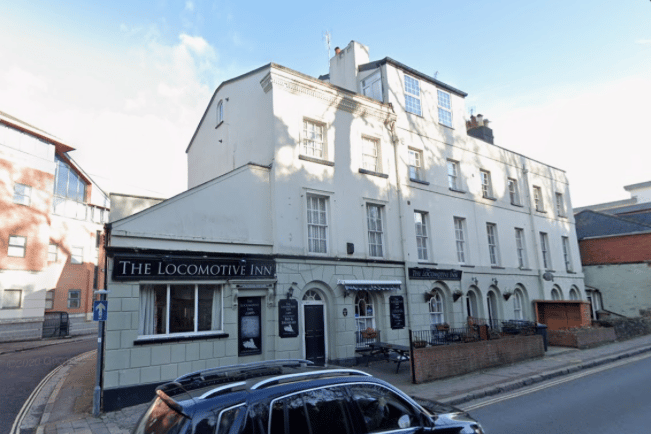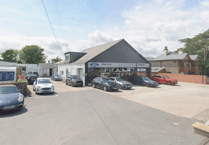ANOTHER much-loved old Exeter pub is to be turned into homes.
The Locomotive Inn in New North Road, known to its regulars as The Loco, was run by landlady Joan Ballman for more than three decades.
Described as a ‘legend’, she pulled pints at the pub into her 80s. Joan died in 2021, and the Loco was finally boarded up and shut down more than two years ago.
Now a planning application has been submitted to Exeter City Council by the pub’s owners to convert and extend the existing building, knocking down some sections, to provide eight apartments.
Originally built around 1839 as a residential terrace, the site became the South Western Hotel in 1862 and was then re-named the Locomotive around 1897 in honour of the railway line and station nearby.
The pub was known as a traditional, characterful “cider house” with a strong tradition of darts.
It was owned by Heavitree Brewery towards the end of its business life, and was put up for sale due to declining trade and profits.
Interviewed for Devon Live in 2019 for an article about the pub and its loyal local following, Mrs Ballman joked: “I can’t say it’s a working man’s pub as half of them don’t go to work!
“I like the people. We get lots of characters, but not as many as we used to.”
The loco is the latest in a list of Exeter pubs to shut down and become homes. The King Billy in Longbrook Street has been demolished and is currently the subject of an application for a large development of student accommodation.
Developers have also applied to build homes on the site of the former Oddfellows pub nearby.
The three-storey Locomotive is listed as a key building in the Longbrook Conservation Area, and Surrey-based applicants Thompson Park Green say: “The proposal looks to build on the character and qualities of the local context, providing a well designed and appropriate residential development.
“The proposed development represents a sensible proposition, and is in an established and sustainable location. It will provide much needed new housing, as well as many identifiable, tangible and long-lasting benefits for the local area.”





Comments
This article has no comments yet. Be the first to leave a comment.